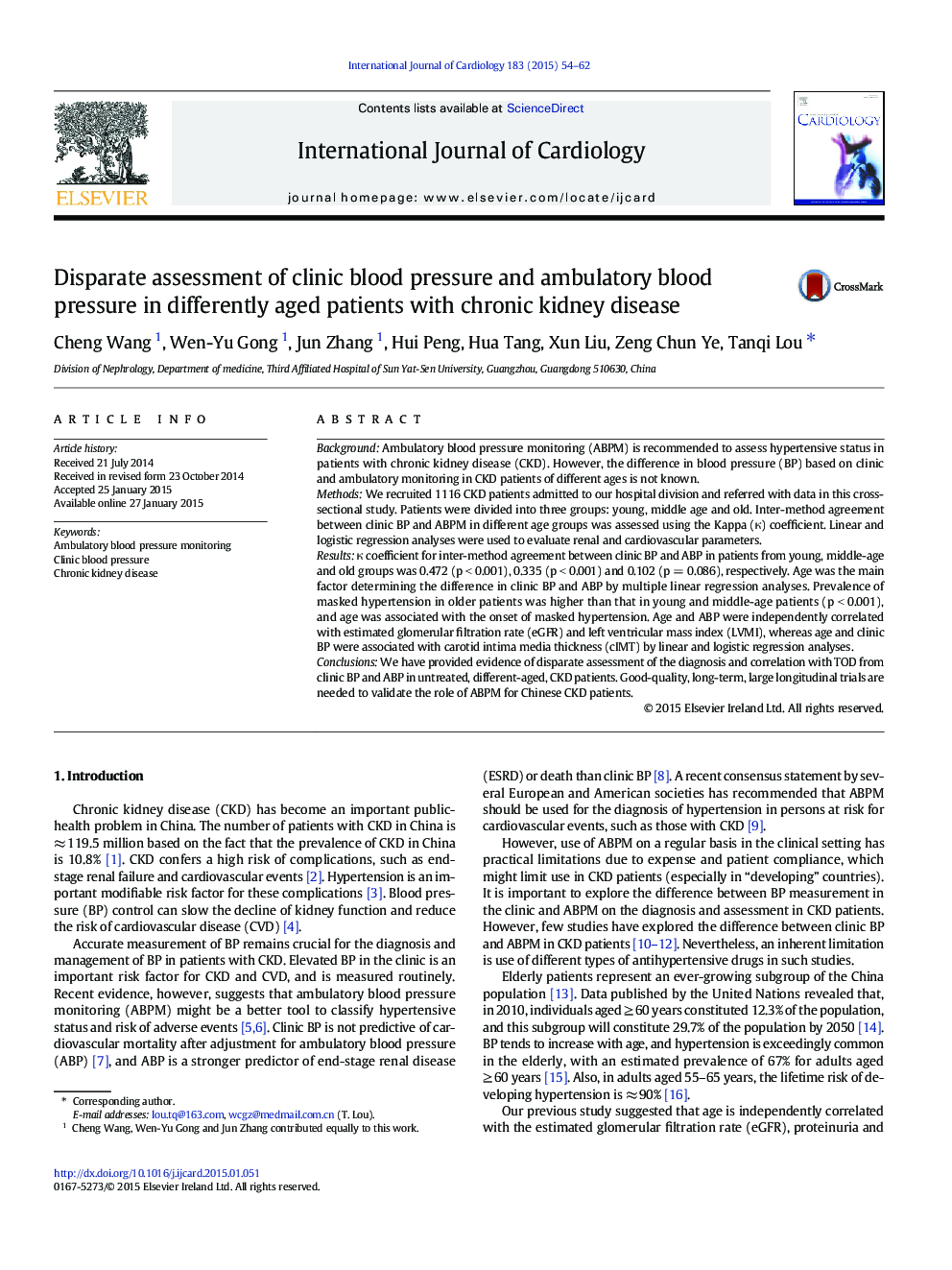| Article ID | Journal | Published Year | Pages | File Type |
|---|---|---|---|---|
| 5968144 | International Journal of Cardiology | 2015 | 9 Pages |
â¢Age was the main determined factors on the difference of clinic and ambulatory blood pressure.â¢The prevalence of masked hypertension in old patients was higher, and age were associated with masked hypertension.â¢Disparate assessment based on clinic and ambulatory blood pressurewith different ages in CKD patients.
BackgroundAmbulatory blood pressure monitoring (ABPM) is recommended to assess hypertensive status in patients with chronic kidney disease (CKD). However, the difference in blood pressure (BP) based on clinic and ambulatory monitoring in CKD patients of different ages is not known.MethodsWe recruited 1116 CKD patients admitted to our hospital division and referred with data in this cross-sectional study. Patients were divided into three groups: young, middle age and old. Inter-method agreement between clinic BP and ABPM in different age groups was assessed using the Kappa (κ) coefficient. Linear and logistic regression analyses were used to evaluate renal and cardiovascular parameters.Resultsκ coefficient for inter-method agreement between clinic BP and ABP in patients from young, middle-age and old groups was 0.472 (p < 0.001), 0.335 (p < 0.001) and 0.102 (p = 0.086), respectively. Age was the main factor determining the difference in clinic BP and ABP by multiple linear regression analyses. Prevalence of masked hypertension in older patients was higher than that in young and middle-age patients (p < 0.001), and age was associated with the onset of masked hypertension. Age and ABP were independently correlated with estimated glomerular filtration rate (eGFR) and left ventricular mass index (LVMI), whereas age and clinic BP were associated with carotid intima media thickness (cIMT) by linear and logistic regression analyses.ConclusionsWe have provided evidence of disparate assessment of the diagnosis and correlation with TOD from clinic BP and ABP in untreated, different-aged, CKD patients. Good-quality, long-term, large longitudinal trials are needed to validate the role of ABPM for Chinese CKD patients.
